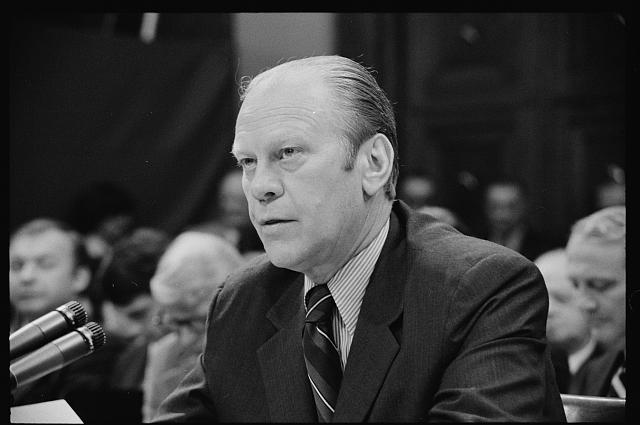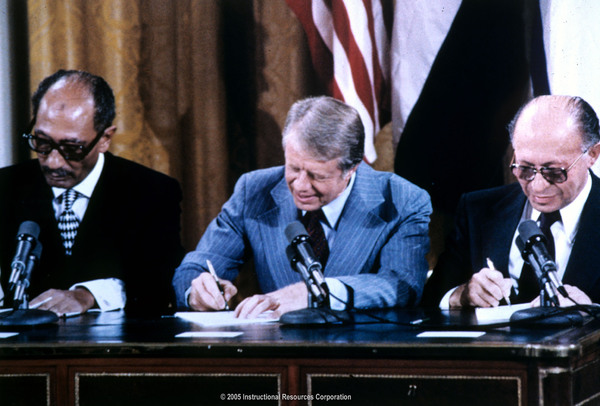Introduction


Central Question: How did the policies implemented by President Ford and President Carter impact the nation?
The day after Richard Nixon's public resignation from office, Gerald Ford was sworn-in as the 38th President of the United States. Seeking to re-direct the nation's focus away from scandal, Ford opted to issue a pardon for Nixon shortly after taking office. The pardon proved to be highly unpopular with the American public and severely damaged Ford's approval ratings. Despite Ford's best attempts to correct the ailing economy and pressing foreign policy matters, his policies proved to be largely ineffective.
Two years later, political newcomer Jimmy Carter edged the incumbent Ford in the 1976 Presidential Election. Carter faced many of the same challenges as president; a weak economy, high inflation, and difficult foreign relations. Like Ford, Carter served only one term as president and left office with little support among the American people.
Following successful completion of this lesson, students will be able to:
- Evaluate the major events of the Ford administration.
- Describe the rationale behind Ford's pardoning of Nixon and the public reaction to it.
- Examine the major events of the Carter administration, including the Iran Hostage Crisis.
- Describe the changing social and cultural conditions during the 1970s.
The above objectives correspond with the Alabama Course of Study: US History 11 Objectives: 15, 16, & 16.1.
This lesson incorporates the following Literacy Standards: R2, R10, W 4, W6, & W9.
Photograph Citations (left to right):
President Gerald Ford appearing at the House Judiciary Subcommittee hearing on pardoning former President Richard Nixon, Washington, D.C. Photo. Lib. of Congress Prints and Photo Division. Web. 15 July 2014. <http://loc.gov/pictures/resource/ppmsca.08447/>.
[Carter] Signing of the Camp David Accords. IRC, 2005. Image. Discovery Education. Web. 15 July 2014. <http://www.discoveryeducation.com/>.